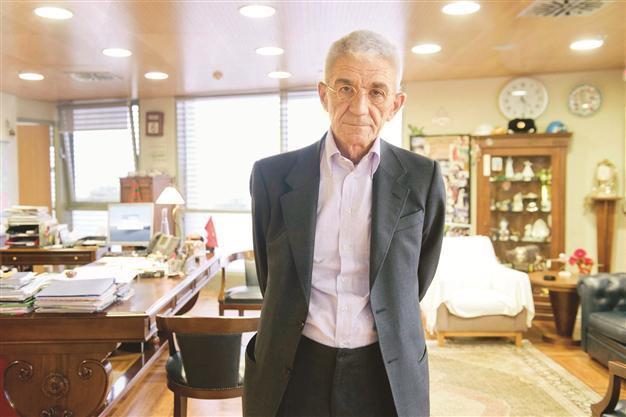Mayor fixes finances of city, wooing Turks
THESSALONIKI - Reuters

Thessaloniki Mayor Yannis Boutaris is leading a big change in the Aegean city. REUTERS photo
Yannis Boutaris, the 70-year old Thessaloniki mayor, who stands apart from the political mainstream, is pulling off reforms that have so far evaded the national government in a three-year-old debt crisis that has sucked in some 150 billion euros of international aid.In contrast to the rest of Greece, this sea-front city of one million is shrinking debt, cutting business taxes to help firms and paying city employees and contractors on time, basically due to the efforts of Boutaris, who has alsoı managed to attract tourism revenues from negihboring countries including Turkey and Israel.
To lure tourists to Thessaloniki he staged the 12th edition of Womex, a big world music festival, and a gay pride parade, infuriating the city’s conservative clergy.
Arrivals from Turkey and Israel soared in the past two years after he helped lure Turkish Airlines and travelled to Israel to evoke the city’s flourishing Jewish, pre-Holocaust past.
Thessaloniki was known as “Second Jerusalem” before most of the Jewish population perished in German concentration camps. Boutaris said his first girlfriend was Jewish. Hasdai Kapon, a former broker whom Boutaris appointed to run the city’s finances, is proud to be the city’s first Jewish municipal counselor since 1937.
But Boutaris’ moves to highlight the city’s Turkish Ottoman and Jewish past as well as his outspoken stance against Greece’s ultra-right Golden Dawn party, have enraged some.
“This is a proud city. It’s unacceptable for him to say that Greeks had a good time under Ottoman rule,” said shopkeeper Ilias Drakopoulos, objecting to some of Boutaris’s proposals to give streets their old Turkish names back and raise a statue of modern Turkey’s founder Mustafa Kemal Atatürk, who was born in the city.
Thessaloniki is saving money by holding competitive tenders for the paper, plastic bags and milk it buys - a departure from past practice of relying on a few, chosen providers.
















